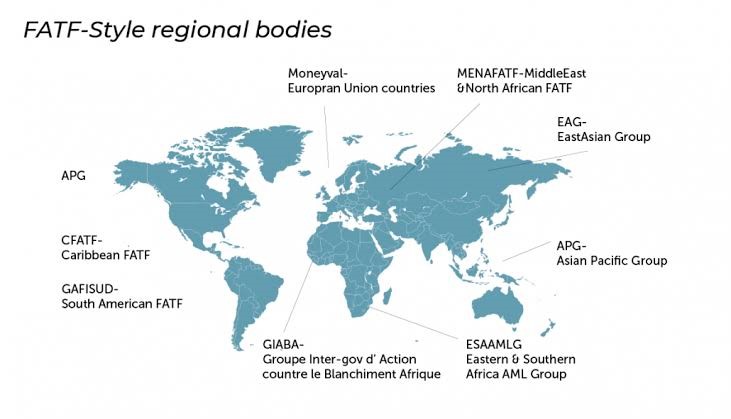FATF keeps Pakistan in grey list, says do more to probe, prosecute terrorists
- The Financial Action Task Force (FATF) retained Pakistan in its “grey list” and directed it to do more in investigating and prosecuting senior leaders and commanders of UN-designated terrorist groups for terror financing.
- The multilateral watchdog announced at the conclusion of its plenary meeting that Pakistan completed 26 of the 27 action items in the action plan the country was given to implement when it was included in the grey list, or list of countries facing enhanced monitoring, in 2018.
- The FATF encourages Pakistan to continue to make progress to address, as soon as possible, the one remaining item by continuing to demonstrate that [terror financing] investigations and prosecutions target senior leaders and commanders of UN-designated terrorist groups.
Background
- Pakistan has repeatedly failed to do enough to investigate and prosecute top leaders of UN-designated terror groups such as Lashkar-e-Taiba (LeT) and Jaish-e-Mohammed (JeM).
- Though it arrested and prosecuted LeT founder Hafiz Saeed in several terror financing cases, the prosecution of other Lashkar leaders collapsed due to lack of evidence.
- Last year, FATF also asked Pakistan to implement a new action plan to counter money laundering.
- Since June 2021, Pakistan has taken “swift steps” towards improving its anti-money laundering and counter-terror financing regime and completed six of the seven items in the second action plan “ahead of any relevant deadlines expiring, including by demonstrating that it is enhancing the impact of sanctions by nominating individuals and entities for UN designation and restraining and confiscating proceeds of crime” in line with the country’s risk profile.
- Since June 2018, Pakistan has shown “continued political commitment” that has led to “significant progress across a comprehensive CFT action plan”.
Implications of Pakistan being on grey list
- The FATF has took note of Pakistan's inactivity against various banned organisations involved in soliciting funds for terror activities and those associated to global terrorists such as Jaish-e-Masood Mohammed's Azhar and Lashkar-e-Hafiz Taiba's Saeed and operations commander Zaki-Ur Rahman Lakhvi.
- India has also suggested the possibility of Pakistani elements being involved in a number of terror instances, including the Mumbai and Pulwama attacks of 26/11.
- Permanent inclusion of Pakistan on the FATF's grey list will put even more pressure on the country to take necessary measures to avoid similar terrorist acts on Indian territory.
- Greylisting, unlike the next level ""blacklist,"" bears no legal implications, but it does impose economic restrictions and limits a country's access to international credit.
- Pakistan's Foreign Minister estimates that every year Pakistan is on the greylist, the Pakistani economy suffers a $10 billion loss.
About FATF
- An intergovernmental organisation founded in 1989 during the G7 Summit in Paris.
- It evaluates a country's anti-money laundering and anti-terrorist funding mechanisms, but it does not consider specific cases.
- Objectives: To establish standards and encourage the effective implementation of legal, regulatory, and operational measures to combat money laundering, terrorist financing, and other risks to the integrity of international financial system.
- Its secretariat is based in Paris, at the headquarters of the Organisation for Economic Cooperation and Development (OECD).
- The FATF now has 39 members, including the European Commission and the Gulf Cooperation Council, both of which are regional organisations. India is a member of the Financial Action Task Force (FATF).
- The FATF Plenary is the decision making body of the FATF. It meets three times per year.
Lists compiled by the FATF:
- Grey List: The FATF maintains a grey list of countries that are deemed safe havens for terrorist financing and money laundering.
- This is a notice to the country that it may be added to the blacklist.
- Black List: The blacklist includes countries classified as Non-Cooperative Countries or Territories (NCCTs). These countries aid in the financing of terrorism and the money laundering activities.
- The FATF updates the blacklist on a regular basis, adding and removing items as needed.
- Iran and the Democratic People's Republic of Korea (DPRK) are now on the High-Risk Jurisdiction or Black List, respectively.
What does ‘increased monitoring’ mean?
- When a nation is placed under intensified monitoring by the FATF, it ""means the country has promised to quickly fix the identified strategic inadequacies within specified timelines and is subject to further checks,"" according to the FATF.


